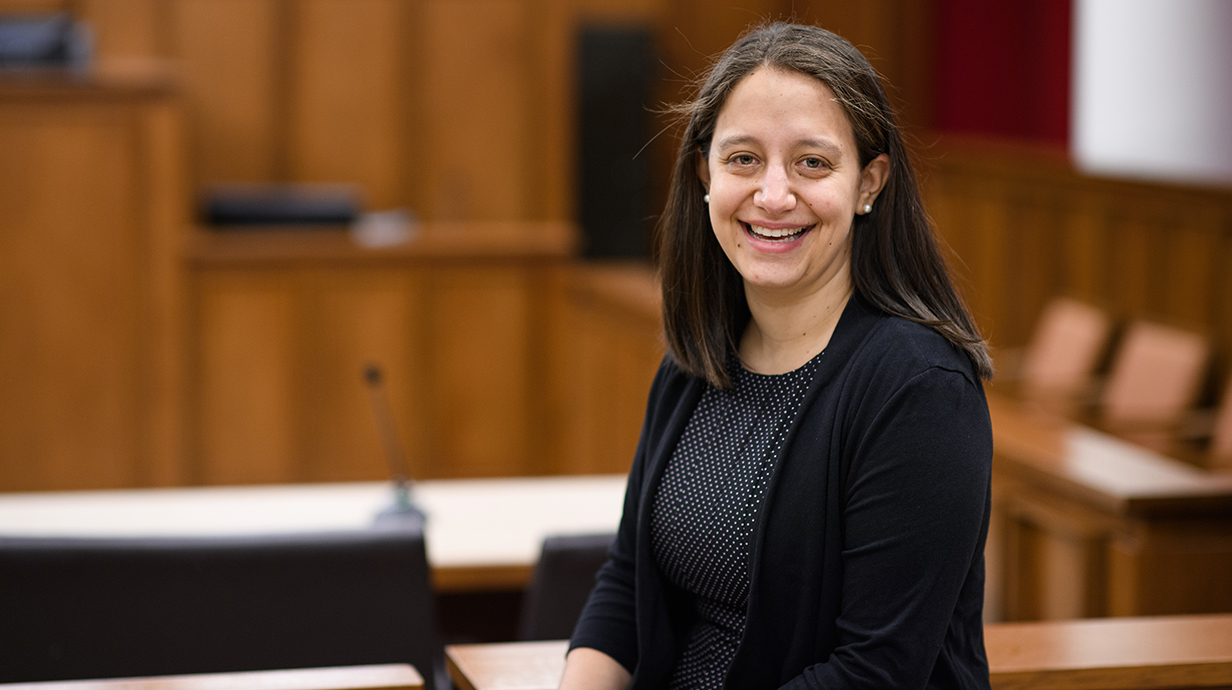Criminal Justice Professor Receives National Science Foundation Award
Rachel Greenspan to study the plea bargaining process

OXFORD, Miss. – A University of Mississippi psychologist's research into the plea bargaining process is being supported by a grant from the National Science Foundation.
Rachel Greenspan, assistant professor of criminal justice and legal studies, is the recipient of an NSF Established Program to Stimulate Competitive Research grant. The $163,533 grant will allow Greenspan to travel to Duke University for two summers to collaborate with the Wilson Center for Science and Justice at Duke Law School.
A plea bargain is an agreement between a prosecutor and a defendant in which the defendant typically agrees to plead guilty to avoid a more severe punishment than they would have received if found guilty at trial.
"While plea outcomes are largely public, the plea bargaining process is not," Greenspan said. "Limited research has explored the process of plea bargaining. Without information on the plea bargaining process, defendants cannot make informed decisions about plea offers."
The lack of information surrounding plea bargaining may also hide arbitrary or biased patterns in the process and impair the public's ability to make informed voting decisions about their local prosecutors, she said.
"Through this project, I will collaborate with the Wilson Center to track trends in plea offers by prosecutor's offices," she said.
Greenspan said she first became interested in research at the intersection of psychology and the law when she read the book "Actual Innocence" in her first semester of undergraduate studies.
"This book details the stories of individuals who have been wrongfully convicted and describes research about the underlying causes of these wrongful convictions," she said. "Most of my work focuses on how the principles and findings of social and cognitive psychology can be used to improve the criminal justice system."
Greenspan said she foresees several benefits of her work.
"With this grant, I will develop a new line of research about the process of plea bargaining," she said. "Oftentimes, more than 95% of cases in a jurisdiction are resolved by plea bargaining. Trials by jury are increasingly rare in the criminal justice system.
"Thus, a systematic study providing insight into the plea bargaining process is critical to community members, policy makers, and criminal justice practitioners."
Greenspan said she plans to use her experiences at the Wilson Center to help expand and develop the Center for Evidence-Based Policing and Reform housed in the UM Department of Criminal Justice and Legal Studies.
Wesley Jennings, Gillespie Distinguished Scholar, chair and professor of criminal justice and legal studies at Ole Miss, said Greenspan and her research are an asset within the department.
"Dr. Greenspan's research expertise and her nationwide networks of top scholars provide great benefit for the Center for Evidence-Based Policing and Reform," Jennings said.
"She has been very successful early on in her career in building a niche in the interdisciplinary areas of false memory, misinformation and eyewitness testimony. These strengths contribute greatly to her approach to teaching and instruction, and in the mentorship and supervision she provides to UM students in the classroom and in the lab."
This work is supported by NSF award no. 2327169.
By
Edwin Smith
Campus
Published
February 09, 2024
